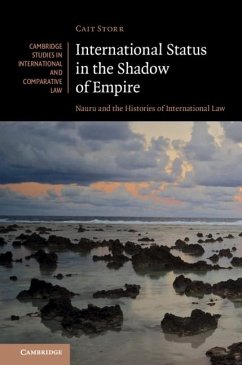Nauru is often figured as an anomaly in the international order. This book offers a new account of Nauru's imperial history and examines its significance to the histories of international law. Drawing on theories of jurisdiction and bureaucracy, it reconstructs four shifts in Nauru's status - from German protectorate, to League of Nations C Mandate, to UN Trust Territory, to sovereign state - as a means of redescribing the transition from the nineteenth century imperial order to the twentieth century state system. The book argues that as international status shifts, imperial form accretes: as Nauru's status shifted, what occurred at the local level was a gradual process of bureaucratisation. Two conclusions emerge from this argument. The first is that imperial administration in Nauru produced the Republic's post-independence 'failures'. The second is that international recognition of sovereign status is best understood as marking a beginning, not an end, of the process of decolonisation.
Dieser Download kann aus rechtlichen Gründen nur mit Rechnungsadresse in A, B, BG, CY, CZ, D, DK, EW, E, FIN, F, GR, HR, H, IRL, I, LT, L, LR, M, NL, PL, P, R, S, SLO, SK ausgeliefert werden.









